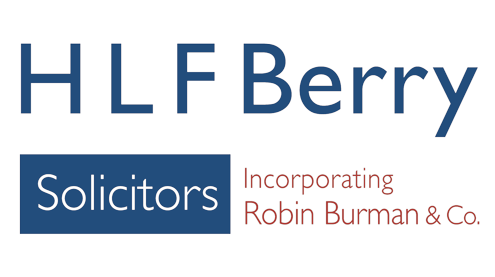What Is The New Inheritance Tax Residence Nil Rate Band Allowance?
The government has just introduced a change to the inheritance tax nil rate band (NRB) allowance, increasing the allowance available to you.
From 6 April 2017, the new residence nil rate band (RNRB) comes into effect and adds an extra allowance in relation to a property, provided you meet certain criteria.
“The latest change to the nil rate allowance for inheritance tax is good news for most individuals, as it offers greater relief with regard to the inclusion of a property as part of their estate,” says Paul Hannam, Solicitor at HLF Berry Chorlton office.
“Until earlier this month, the majority of us had a nil rate band (NRB) allowance of £325,000, which could be combined with a spouse’s allowance to give a total of £650,000 free of inheritance tax. Now, provided the set criteria are met, an estate will be entitled to an extra allowance of £100,000 this tax year, rising to £175,000 by 2021.”
Guide To The Residence Nil Rate Band Allowance
In order to qualify for the new inheritance tax allowance, you need to meet the following criteria as detailed by HM Revenue & Customs:
- The individual dies on or after 6 April 2017
- The individual owns a home, or a share of one, and this is included in the estate
- The individual’s direct descendants inherit the home or the share of it
- The value of the estate is less than £2million
The allowance depends on the tax year of the death:
- £100,000 in 2017/18
- £125,000 in 2018/19
- £150,000 in 2019/20
- £175,000 in 2020/21
What Should You Do About RNRB Allowance?
“Your estate may qualify for the new relief if the property has been your residence at some point in your life – you may have downsized, sold or gifted your home after 7 July 2015, and you should still be eligible,” explains Paul Hannam.
“The property doesn’t need to be your primary residence and could even be a holiday home. The extra allowance is capped at the value of the property or the value of the equity in the property if there is a mortgage outstanding.
“As with the NRB allowance, any unused RNRB allowance can be transferred to the deceased spouse’s or civil partner’s estate. Even if the first death happened before 6 April 2017, the transfer is still possible. Unmarried couples or divorcees can still benefit from the new inheritance tax allowance if they leave the property to direct descendants but they are unable to transfer any unused allowance to each other.
“Given this recent change in legislation, individuals are encouraged to review their Will or to make a Will if they don’t currently have one – to ensure their estate qualifies for the RNRB allowance.
“Our professional solicitors would be happy to provide tailored advice regarding your situation and how this new inheritance tax change may affect you.”
For free and impartial legal advice on all inheritance tax matters and what the new RNRB allowance means for you, please contact our Chorlton office on 0161 860 7123 or email chorlton@hlfberry.com






